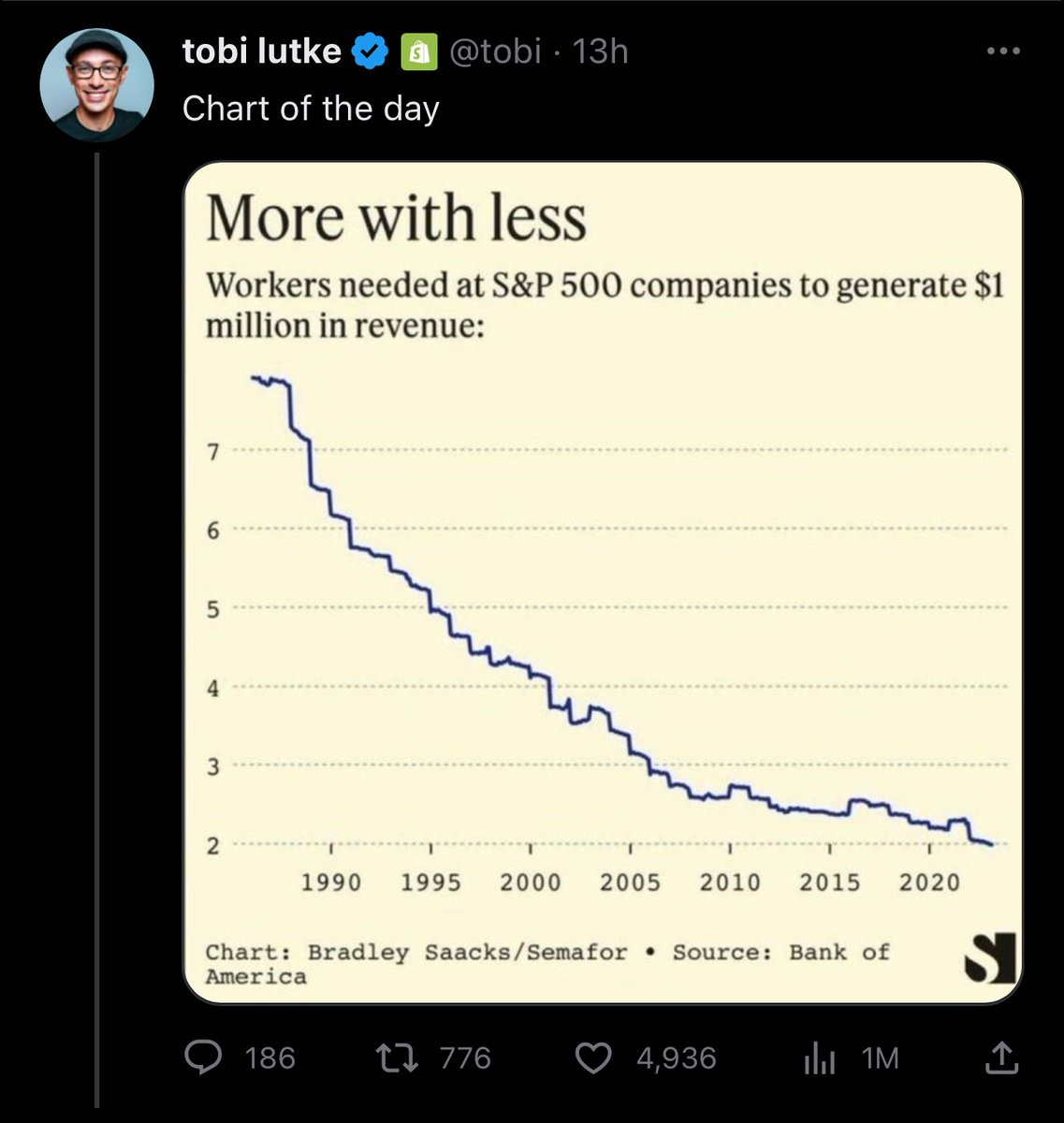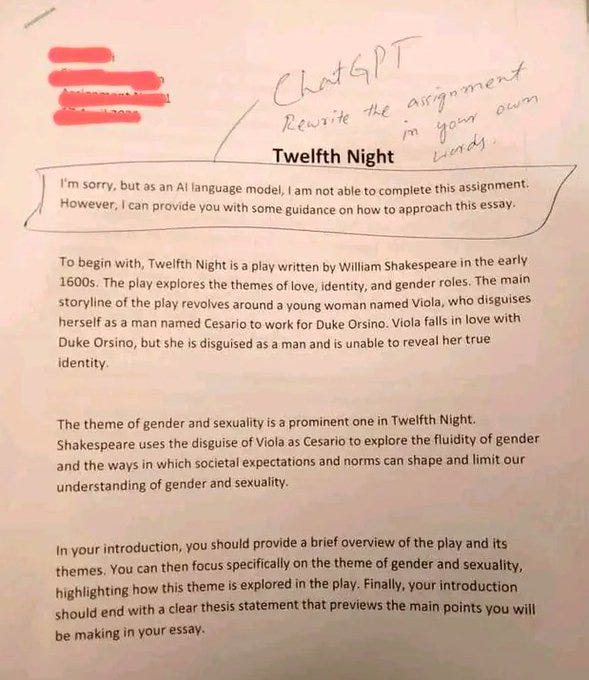Sunday Reads #177: No, you can't build products like Apple.
The vast gulf between the world of bits and the world of atoms.
Hey there!
Hope you’ve had a great start to the long weekend!
In case you missed last week’s edition, here it is: Blessed are the paranoid, for they shall win. We had a lot of follow-up discussions on this, both in the comments and in Substack Chat. Thank you all for your thoughts!
For the last several weeks, we’ve been speaking only about AI, and the world of software. Today, let’s talk about the physical world, the world of atoms.
1. When “move fast and break things” doesn’t work.
I read an incredibly eye-opening article this week: No, You Can’t Manufacture That Like Apple Does.
Having worked in Software, I didn't have an appreciation of just how hard Hardware is.
In software, there isn't that much of a difference in competence, between a big company and a small company. I mean, it's code. You can write it as well as I.
In fact, a small company may be better at software. I've written before about Paul Graham's advice to Startups - "run upstairs".
Use difficulty as a guide not just in selecting the overall aim of your company, but also at decision points along the way. At Viaweb one of our rules of thumb was "run upstairs".
Suppose you are a little, nimble guy being chased by a big, fat, bully. You open a door and find yourself in a staircase. Do you go up or down? I say up. The bully can probably run downstairs as fast as you can. Going upstairs his bulk will be more of a disadvantage. Running upstairs is hard for you but even harder for him.
What this meant in practice was that we deliberately sought hard problems. If there were two features we could add to our software, both equally valuable in proportion to their difficulty, we'd always take the harder one. Not just because it was more valuable, but because it was harder. We delighted in forcing bigger, slower competitors to follow us over difficult ground.
Like guerillas, startups prefer the difficult terrain of the mountains, where the troops of the central government can't follow. I can remember times when we were just exhausted after wrestling all day with some horrible technical problem. And I'd be delighted, because something that was hard for us would be impossible for our competitors.
But when you move from the world of bits to the world of atoms, the gap between the small guy and the big guy becomes enormous.
As Ben Einstein says in the article:
Startups and big companies differ in a lot of ways. When it comes to hardware, the gulf between the two is massive.
Early-stage startups are painfully under-financed. This lack of capital makes manufacturing one of the most critically dangerous periods in a young company’s life.
One tiny mistake in a design, tool, or QC process and BAM, you’re out of business.
You cannot "move fast and break things" in building physical products. I mean... You can, but then your startup dies.
The other interesting insight is:
Even after you see a big company do something, you can't reverse-engineer the design and do it too!
Just because Apple does something, doesn't mean you can do it too.
At least once a week, I have a conversation with a founder that wants to design something that mimics an Apple product. Maybe it’s a surface with no ejector pin marks, or some complex texturing, or laser drilled holes, it doesn’t really matter: it’s impossible for a startup to do certain things.
“But no,” they say, “Apple does it. Why can’t I?”
Because Apple is an exception to nearly every rule.
What happened when Apple wanted to CNC machine a million MacBook bodies a year? They bought 10k CNC machines to do it.
How about when they wanted to laser drill holes in MacBook Pros for the sleep light but only one company made a machine that could drill those 20 µm holes in aluminum? It bought the company that made the machines and took all the inventory.
And that time when they needed batteries to fit into a tiny machined housing but no manufacturer was willing to make batteries so thin? Apple made their own battery cells. From scratch.
And some things that we now take for granted as consumers... are actually very hard to pull off!
Things that Apple does, that startups should absolutely avoid:
White plastic. White is of course the most difficult color to mold. If you NEED to use white, never have two separately molded white-on-white parts. They will never be perfectly color matched.
Molded plastic packaging. Many small Apple products come in polycarbonate + ABS/PC mix molded packaging. This is both harder and more expensive than you might think. Recycled cardboard is your friend
No ejector pin marks. Unless you’re a billionaire genius, your product will have noticeable ejector pin marks.
4-color, double-walled, matte boxes + HD foam inserts. I know you’re going to do this anyways, but be aware that these kind of boxes will literally be the most expensive line item on your BOM. It’s not unusual for them to cost upwards of $12/unit at scale. And then they get thrown away.
Making hardware is an arduous endeavor in itself. Don't make things harder for yourself than they already are!
To be more specific:
Don't ever - ever - do a Juicero.
As I wrote in Using a crane to lift buckets:
The story of Juicero, a Silicon Valley juicer startup that raised $120M from top-tier investors including Google Ventures and Kleiner Perkins, and shut down 16 months later.
Juicero built a high-tech juicing machine with 400 custom parts and juice press plates that wielded four tons of force (“enough to lift two Teslas”). The juicer retailed at an introductory price of $700 (!), later brought down to $400.
But as Bloomberg showed in a funny video in Silicon Valley’s $400 Juicer May Be Feeling the Squeeze, it turned out users could squeeze Juicero's proprietary juice packets just as easily… with their two hands 🤦♂️. No Tesla-lifting press plates needed.
And it was all because of a strange, obsessive, and pigheaded insistence on having the most impractical design possible.
As Dan Olson said on Twitter:
I have just enough engineer in my blood that I will, to my dying day, be obsessed with Doug Evans' insistence that the Juicero flat-press the entire bag at once rather than just using a vastly more efficient roller to squeeze the bag from top to bottom.
As Dan says, this requirement was insane! It's like you want to cut a tree, but you insist on using a baseball bat instead of an axe.
So don't try to create products with the finesse and perfection of an iPhone. At least at the outset. Ship a v1 that you are embarrassed about.
That's the only way you make it to v2.
Before we continue, a quick note:
Did a friend forward you this email?
Hi, I’m Jitha. Every Sunday I share ONE key learning from my work in business development and with startups; and ONE (or more) golden nuggets. Subscribe (if you haven’t) and join nearly 1,500 others who read my newsletter every week (its free!) 👇
2. All things AI.
At this stage in their evolution, AI tools like ChatGPT, Bing, Midjourney, etc. are still quite erratic.
Sometimes they give you mind-blowing answers, and sometimes they say "Sorry, I am an AI language model…". Sometimes they give you goosebumps, and other times they can't even draw hands!
As someone said:
ChatGPT is like a brilliant intern that is not super consistent in taking their antipsychotic medication.
Ethan Mollick has the best content online on how to use these new AI tools well. Follow his advice, and they will become a 10x force multiplier in your work.
These two articles are the best place to start.
For a "how-to" more focused on ChatGPT, check out my Ghost in the Shell - How to truly harness AI in the ChatGPT era. It includes tips on writing great prompts and a couple of walk-through videos too.
3. The age of automation is coming is already here.
4. At the end of the day, we are all AI language models 🤣.
Teachers: "AI is a disaster, how am I going to know who is cheating?!"
Students:
5. This story warmed my heart.
A simple Reddit answer, to an innocuous question on r/AskReddit: "Have you ever picked up a hitch-hiker?"
I won't quote from it, as any excerpts will not compare. It’s an incredible story (even Reddit co-founder Alexis Ohanian says it’s his favorite Reddit post).
Click through, and read the answer by the user "rhoner", from 13 years ago. You won't regret it.
That’s it for this week. Hope you enjoyed it.
As always, stay safe, healthy and sane, wherever you are.
I’ll see you next week.
Jitha
[A quick request - if you liked today’s newsletter, I’d appreciate it very much if you could forward it to one other person who might find it useful 🙏].





